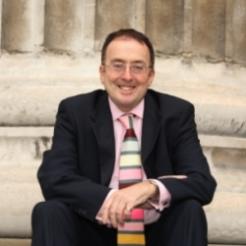The Health Lottery has fought back against criticisms made of it by Sir Stephen Bubb and claimed that the National Lottery in effect gives only 10p in the pound to charities – and most of that in London.
At a press conference in London yesterday the Health Lottery celebrated having raised £8m for charities in the three months since launching. But the organisation also released a statement taking aim at criticisms lobbed at it, in particular by Acevo chief executive Sir Stephen.
A statement released in the name of Jeremy Muller, director of the 51 community interest companies (CICs) which make up the Health Lottery, repeatedly labelled Sir Stephen – who has called for the new lottery to increase the proportion of ticket sales it gives to charity – “out of touch”.
“[Bubb] is critical of the fact that the 51 CICs currently have a similar structure. However looking at the curriculum vitae alongside Sir Stephen’s blog it would appear he had never been in business, having built his career through unions… Had he been in the for-profit sector he might appreciate that you cannot build a national network of businesses overnight.”
Muller told the group assembled at the Savoy Hotel that the Lottery is not “owned” by Richard Desmond and that the media mogul should be “commended” for his investment in an enterprise that will deliver additional funds for health charities.
Criticism of National Lottery
While Health Lottery chief executive Martin Hall re-asserted his position that the lottery is concerned about how much it gives to charity, rather than what proportion, Muller’s statement featured a breakdown of how much the National Lottery gives to charity. Excluding money awarded to heritage, sports, the Olympics and the arts, the Health Lottery claimed that in effect the National Lottery only gives 10p in the pound to “good causes”.
More controversially, the statement went on to claim that 60 per cent of National Lottery money was distributed within the M25, the motorway which encircles the capital.
“Many Britons, especially those living any distance from the M25, may well not consider some of these investments to be particularly ‘good causes’.
“The conclusion most British people would draw here is that while it is called ‘the National Lottery’ its impact in supporting good causes is anything but national.”
DCMS response
This claim was refuted by the Department for Culture, Media and Sport, which regulates the National Lottery. A DCMS spokeswoman told civilsociety.co.uk:
“This misunderstands how lottery money is distributed and recorded. There is no way of working out how much money has been awarded inside the M25 as the boundaries in our lottery grants database do not follow the M25.
“Since the start of the (National) Lottery, just over 20 per cent of awards made had London postal addresses. In most cases lottery funding is recorded according to the address of the organisation that has made the application so it is not possible to make meaningful geographical funding comparisons. Many national charities have head offices in London, but bid for money to do work in other regions of the UK.”









